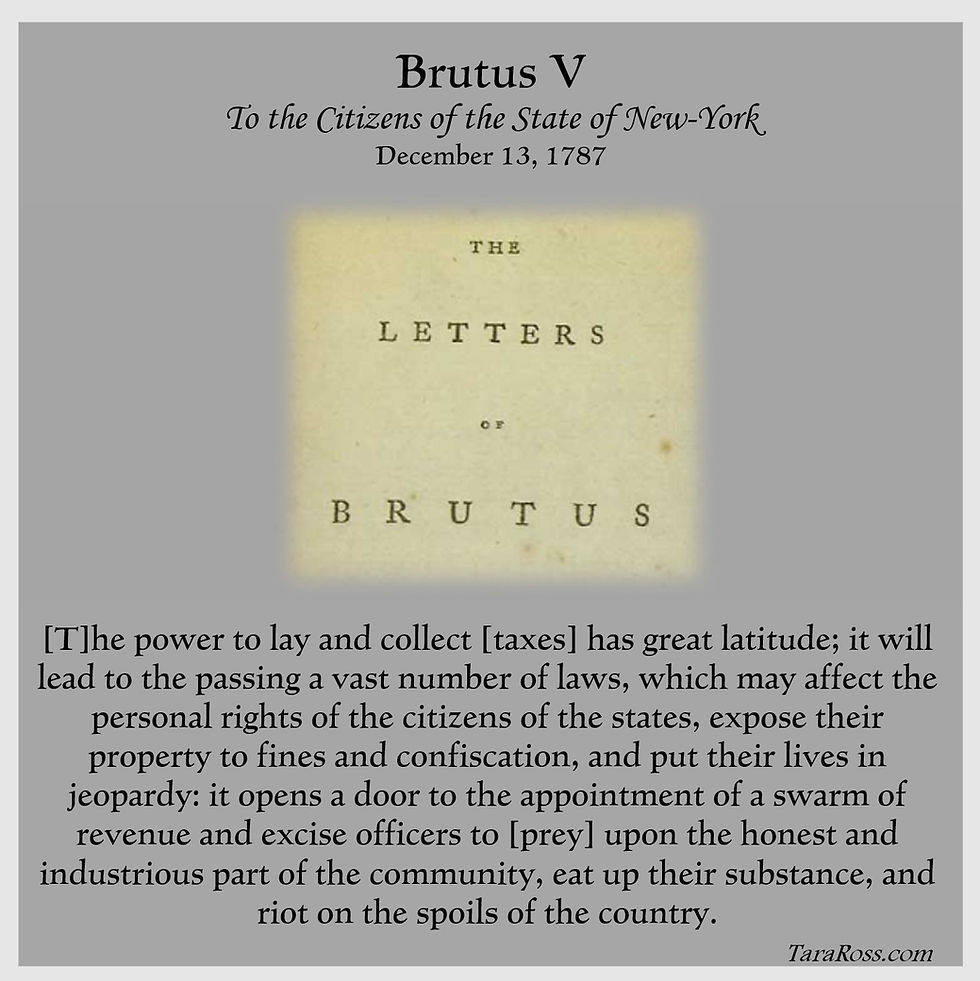On this day in 1787, an author writing under the pseudonym “Brutus” writes his fifth contribution to the anti-Federalist Papers. These papers argued against the new Constitution, then being considered for ratification by the states.
Brutus is worried about Congress’s power to “lay and collect taxes, duties, imposts and excises” in order to “provide for the common defence, and general welfare of the United States.” And he thinks this power becomes even more worrisome when considered in conjunction with a second provision, granting Congress power to “make all Laws which shall be necessary and proper for carrying into Execution” this taxing power.
It’s hard to read Brutus’s concerns without thinking about Obamacare, which was upheld by the Supreme Court as a legitimate exercise of the taxing power.

Brutus begins by noting that the “power to lay and collect [taxes] has great latitude.” Indeed, it may be “utterly impossible fully to define this power,” he concludes. The number of ways in which a government can raise revenue are “endless.” How, then, can we know what will be “necessary and proper” for carrying the taxing power into effect, if we cannot even define the limits of congressional ability to tax? In the words of Brutus:
“If then the objects of this power cannot be comprehended, how is it possible to understand the extent of that power which can pass all laws which shall be necessary and proper for carrying it into execution? It is truly incomprehensible. A case cannot be conceived of, which is not included in this power.” Brutus believes that “this power in its operation, would totally destroy all the powers of the individual states.”
Importantly, Brutus does not think this is the intent of anyone, either on the pro- or anti-Constitution side of the equation. To the contrary, he says it is “agreed by most of the advocates of this new system, that the government which is proper for the United States should be a confederated one; that the respective states ought to retain a portion of their sovereignty, and that they should preserve not only the forms of their legislatures, but also the power to conduct certain internal concerns.”
In other words, **no one** was trying to create the powerful national government that Brutus is describing!
Brutus had opened his paper with a definition of “confederated government” that would be appropriate for the United States: “[A] number of independent states entering into a compact, for the conducting certain general concerns, in which they have a common interest, leaving the management of their internal and local affairs to their separate governments.”
The founding generation largely agreed on this goal, as described by Brutus. They simply disagreed on whether the Constitution could or could not achieve that objective.
Comments